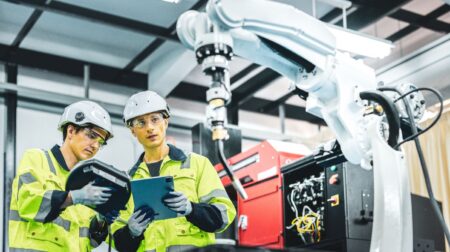Robotics and artificial intelligence (AI) could play a role in mitigating the staffing crisis in the tourism industry without replacing employees, according to a report by Traveltech for Scotland, a consortium of travel-focused technology companies.
Traveltech for Scotland claims to bring together more than 130 organisations. Its report reveals that working conditions and pay could be improved through technology, for example, software-enabled employee wellbeing platforms.
The company suggests that robotics and AI could therefore be a central pillar in the future success of these industries.
It also suggests that further support is needed for technical solutions that help with scheduling, training and management, as this could support improved staff retention in industries that have experienced a sustained period of high vacancies.
There is, the report says, a particular need to help small businesses, which can struggle to raise the financing needed to invest in new technological solutions.
According to the report, Scotland’s tourism and hospitality sector contributes around £6bn annually to the national economy, with tourism businesses representing eight percent of all of the country’s registered businesses.
Traveltech for Scotland suggests long-term staffing issues must be addressed to protect the sector.
The report, funded by the Scottish government’s Tourism Recovery Fund and commissioned by Skills Development Scotland, cites the likes of Lemon, a health and safety solutions app, and Hop, a cloud-based property management system, as current solutions that could benefit organisations.
The company has also developed a searchable database, named the Traveltech Scotland Directory, to make searching for particular solutions more efficient.
Joshua Ryan-Saha, director of Traveltech for Scotland and report author, said: “Staff shortages in the hospitality industry are a problem that will stay with us for a long-time.
“There is just a smaller pool of people who can and want to work in hospitality now than before.
“To secure the future of this critical industry, we need to better use the technology we have now, and we need to build the hospitality technology of the future.
“The potential of robotics and artificial intelligence is enormous, but we can’t replace people with robots. It wouldn’t be right, and it wouldn’t work.
“Using technology to augment staff as they undertake their tasks and find ways to automate the less desirable parts of the job, we can create a fairer, more desirable working environment for staff.”
In addition to increasing procurement efforts for new solutions, the report suggests that the hospitality and tourism industry has the opportunity to pursue further research opportunities to help safeguard the market against future challenges, in addition to current ones.









